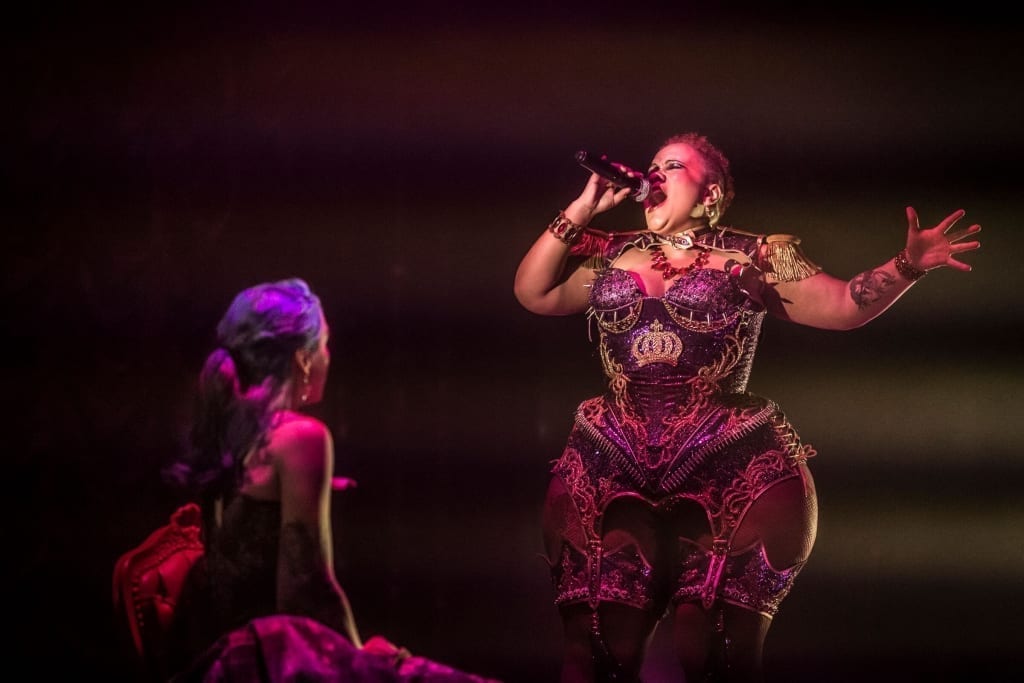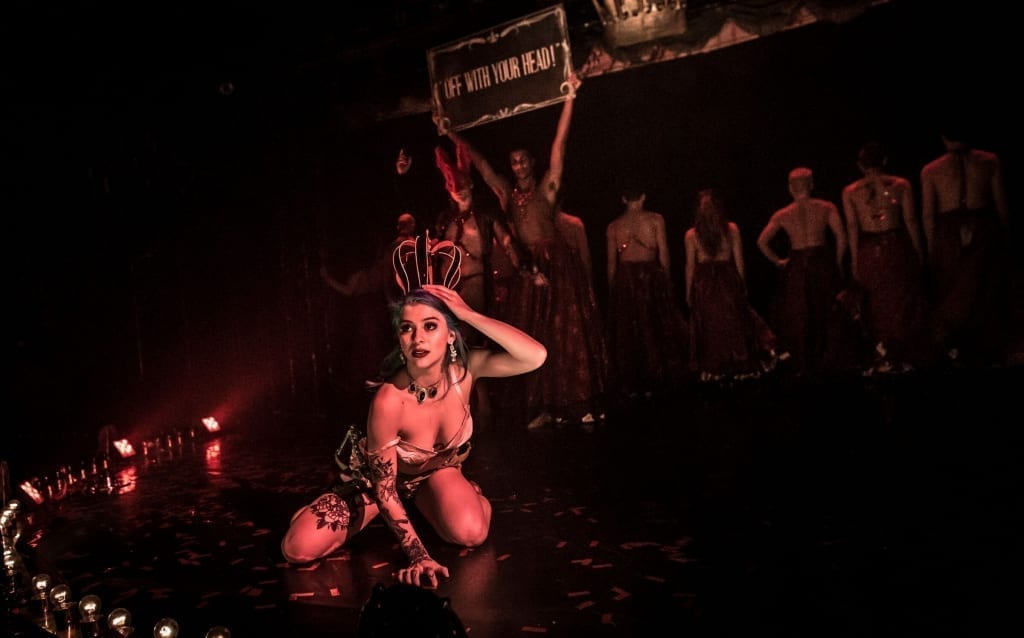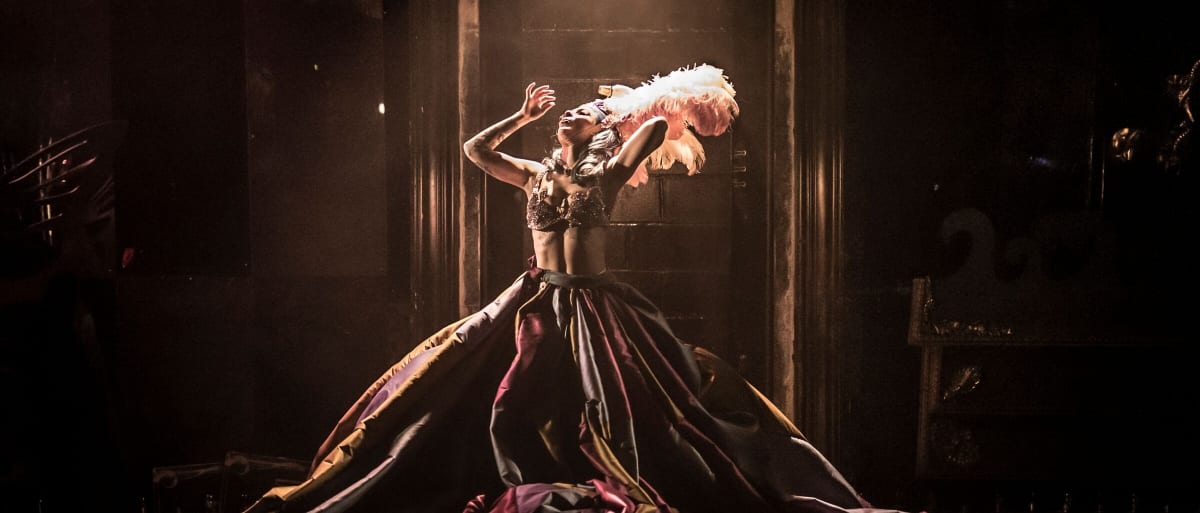It has become such a rote exercise for directors and choreographers to plunder Lewis Carroll’s children’s classic that one would be forgiven for ignoring “Queen of Hearts”. That being said, anyone who does so would be making a grave mistake. In the mythos of Alice in Wonderland Austin McCormick finds a perfect container for his potent cocktail of dance, opera, burlesque, theater, and live music. Carroll’s text practically reads as a surreal burlesque romp, full of clowns and illusionists and an undeniable, latent Eros. McCormick’s version brings the Eros charging to the forefront, without sacrificing an ounce of the surreal.
Among the uniformly talented ensemble, one character towers a top hat above: The Mad Hatter (Marcy Richardson). While she owns one of the shows weakest moments, she also propels the show to its most impressive heights. First, the nadir: a number decrying the ills of the 45th President, that ends with a bellowed “Fuck Trump!” Yes, of course, I agree: “Fuck Trump!”, and, of course, so does the audience: this line might have gotten the loudest round of applause of the night. But it’s a pandering gesture, as much so here as it was when Robert de Niro shouted it at the Tony’s, and as it was when Ivo van Hove closed his acclaimed production of “Network” with a shot of Trump being inaugurated. And that was on live national broadcast TV, and Broadway, two places where the unsuspecting Trump voter might accidentally poke their head. But here? In Bushwick, one of the more progressive neighborhoods, in one of the most progressive cities? Such a sentiment feels even cheaper.

That aside, the Mad Hatter and her tea party, all made up as scantily clad rococo courtiers, consistently dazzle. Richardson displays a surprising and impressive vocal range, singing comic opera (later, while the Cheshire cats dance ballet, she meows along with the melody), and a French-language version of Gaga’s “Poker Face”, before she slips seamlessly into a stirring rendition of “Mad World.” This last moment was, perhaps, my favorite (though it is difficult to pick just one), a sort of aerial pas de deux, charged with quiet yearning, between the Hatter and the Dormouse (a lithe, tender, and fittingly sleepy Nolan Mckew).
Part of the power of the “Mad World” number comes from the fact that it is the only part of the show that even approaches tenderness. This isn’t a problem—McCormick’s goal is to delight, to titillate, to liberate. This is no narrative that peddles in catharsis. In fact, quite the opposite. Something remarkable happened at the show that I watched, towards the end, after the Queen of Hearts (the show-stopping Storm Marrero) has already sentenced Alice to death by beheading. The ensemble tied her to the block, and the White Rabbit appeared, carrying a huge, glittering red axe, which he proffered to the audience, who cheered wildly. It went on for only a moment, before they realized that they were cheering on the executioner as he moved against the ostensible protagonist.

But why shouldn’t they call for blood? McCormick has created a Wonderland where the wonder comes not from the bizarre cast of characters floating through the unfamiliar world, but from the fact that those characters inhabit that world with such joie de vivre. Here is a queer utopia, a world of pleasure and delight unmolested by self-searing shame. A world with no neuroses—the sexy and confident Michael Cunio replaces the typically nebbish White Rabbit; Tweedle Dee and Tweedle Dum (Nicholas Katen & Ross Katen) are harmless jokers, not the leery, somewhat perverted figures of the Disney version. And Alice, not of this world, loiters, transgresses, and earns no sympathy.
Of course, the axe falls, and Alice jerks awake. It was all a dream, but what a dream it was! How lucky she is to have glimpsed Eden, to have flown close to the sun and landed unscathed upon a bed of feathers. How lucky we are too, to have this glimpse of true freedom, which is, alas, all too fleeting.

